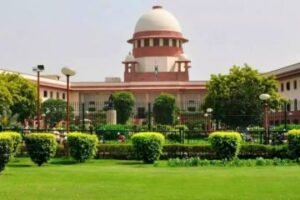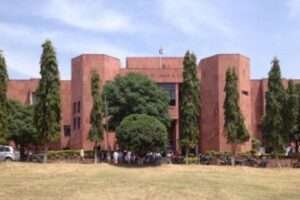‘Judges Must Not Behave Like Emperors’: Supreme Court Strongly Condemns High Courts’ Practice Of Summoning Of Public Officers Unnecessarily
Case: State of Uttar Pradesh vs. Dr. Manoj Kumar Sharma
Coram: Justices Sanjay Kishan Kaul and Hemant Gupta
Case No: [CA 2320 OF 2021]
Court Observation: “A practice has developed in certain High Courts to call officers at the drop of a hat and to exert direct or indirect pressure. The line of separation of powers between Judiciary and Executive is sought to be crossed by summoning the officers and in a way pressurizing them to pass an order as per the whims and fancies of the Court.”
“The actions or decisions by the officers are not to benefit them, but as a custodian of public funds and in the interest of administration, some decisions are bound to be taken. It is always open to the High Court to set aside the decision which does not meet the test of judicial review but summoning of officers frequently is not appreciable at all. The same is liable to be condemned in the strongest words”
“They must have modesty and humility, and not behave like emperors. The legislature, the executive, and the judiciary all have their own broad spheres of operation. It is not proper for any of these three organs of the State to encroach upon the domain of another, otherwise the delicate balance in the Constitution will be upset, and there will be a reaction. ”
“Thus, we feel, it is time to reiterate that public officers should not be called to court unnecessarily. The dignity and majesty of the Court is not enhanced when an officer is called to court. Respect to the court has to be commanded and not demanded and the same is not enhanced by calling public officers. The presence of public officer comes at the cost of other official engagements demanding their attention. Sometimes, the officers even have to travel long distances.
Therefore, summoning of the officer is against the public interest as many important tasks entrusted to him gets delayed, creating extra burden on the officer or delaying the decisions awaiting his opinion. The Court proceedings also take time, as there is no mechanism of fixed time hearing in Courts as of now. The Courts have the power of pen which is more effective than the presence of an officer in Court. If any particular issue arises for consideration before the Court and the Advocate representing the State is not able to answer, it is advised to write such doubt in the order and give time to the State or its officers to respond.”
[doc id=6994]
Previous Posts
Managements Of Colleges Acting And Later Projecting Students To Claim Equities Is Deplorable: Supreme Court Download Judgement




